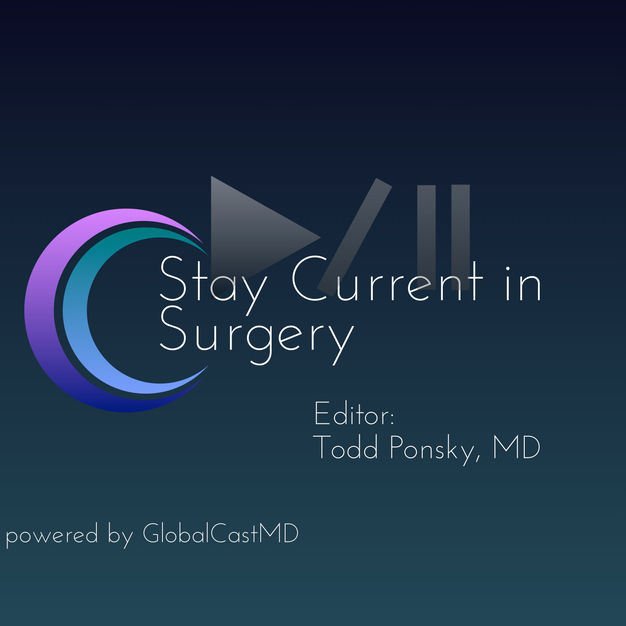
Stay Current in Pediatric Surgery
GlobalCastMD
Through GlobalCastMD’s world-class network of physicians and technology, any health system can provide their doctors access to ongoing mentoring and education. Companies can leverage this same network to more effectively train physicians on products and use it to help train their own sales force. Our educational materials aim to provide entertaining, interactive education for anyone, regardless of geography. We truly are: Dedicated to the rapid advancement of care. Everywhere.
- 4 minutes 53 secondsFatty Filum Terminale Tethered Cord Release by Dr. Robin Bowman - Lurie Children's
In this educational video, Dr. Robin Bowman from Lurie Children’s Hospital in Chicago demonstrates the surgical release of a fatty filum terminale in a patient with tethered cord syndrome. Tethered cord syndrome is a stretch-induced condition that can cause progressive neurological deficits, including gait abnormalities, loss of bladder control, and chronic pain.
Key Highlights:
- Understanding Tethered Cord Syndrome: How abnormal attachment of the filum terminale stretches the spinal cord and impacts function.
- Preoperative Imaging: The use of spinal MRI to identify the location of the conus, tethering lesions, and spina bifida occulta.
- Surgical Technique: A step-by-step overview of the untethering procedure, including laminotomy, nerve root stimulation, and filum transection.
- Postoperative Closure: Ensuring a watertight dura closure and layered wound repair to optimize healing and outcomes.
Learn about this critical surgical procedure designed to relieve symptoms and prevent further neurological deterioration in children with tethered cord syndrome.
17 January 2025, 2:00 pm - 23 minutes 40 secondsColorectal Quiz: Episode 43 - Malone Problems
In this episode of the Colorectal Quiz, Drs. Marc Levitt and Jason Frischer are joined by Drs. Jeffrey Avansino and Hira Ahmad to discuss the nuances of the Malone procedure, used for managing fecal incontinence and constipation in pediatric patients. From patient selection to managing complications, this in-depth conversation highlights the importance of collaboration between urology and surgery for optimal outcomes.
Key Topics:
- Understanding the Malone Procedure: Creating a channel to administer enemas for patients with continence challenges.
- Technical Considerations: When to use a shared appendix, manage leakage, and troubleshoot complex cases.
- Complication Management: Addressing stenosis, leakage, and rare issues like appendiceal prolapse.
- Future Approaches: Exploring the importance of teamwork and innovative solutions in colorectal surgery.
Whether you're a pediatric surgeon or someone interested in advancing your understanding of colorectal care, this episode is packed with practical tips and insights. Don't forget to download the Stay Current app for related images and resources, and subscribe for more episodes of the Colorectal Quiz!
16 January 2025, 11:01 am - 11 minutes 28 secondsUmbilical Disorders with Dr. Rebeccah Brown
In this podcast, we explore the anatomy, conditions, and treatment strategies related to umbilical disorders in newborns and young children with Dr. Rebeccah Brown from Cincinnati Children's.
From umbilical cord anatomy and infections like omphalitis to congenital abnormalities like gastroschisis and umbilical hernias, this comprehensive discussion covers key diagnostic and management approaches. We also highlight treatment guidelines for umbilical granulomas and practical tips for avoiding complications with silver nitrate applications.
Host: Em Gootee, MD
0:00 Introduction
0:59 Omphalitis
2:00 Umbilical Hernia
6:55 Proboscoid Hernia
8:48 Umbilical Granuloma
10:18 Summary
Zens TJ, Rogers A, Cartmill R, Ostlie D, Muldowney BL, Nichol P, Kohler JE. Age-dependent outcomes in asymptomatic umbilical hernia repair. Pediatr Surg Int. 2019 Apr;35(4):463-468. doi: 10.1007/s00383-018-4413-3. Epub 2018 Nov 14. PMID: 30430281. https://pubmed.ncbi.nlm.nih.gov/30430281/
Zens T, Nichol PF, Cartmill R, Kohler JE. Management of asymptomatic pediatric umbilical hernias: a systematic review. J Pediatr Surg. 2017 Nov;52(11):1723-1731. doi: 10.1016/j.jpedsurg.2017.07.016. Epub 2017 Jul 24. PMID: 28778691. https://pubmed.ncbi.nlm.nih.gov/28778691/
Halleran DR, Minneci PC, Cooper JN. Association between Age and Umbilical Hernia Repair Outcomes in Children: A Multistate Population-Based Cohort Study. J Pediatr. 2020 Feb;217:125-130.e4. doi: 10.1016/j.jpeds.2019.10.035. Epub 2019 Nov 8. PMID: 31711762. https://pubmed.ncbi.nlm.nih.gov/31711762/
He K, Graham DA, Vernacchio L, Hatoun J, Patane L, Cramm SL, Rangel SJ. Age and Probability of Spontaneous Umbilical Hernia Closure. JAMA Pediatr. 2024 May 1;178(5):497-498. doi: 10.1001/jamapediatrics.2024.0087. PMID: 38466296; PMCID: PMC10928535. https://pubmed.ncbi.nlm.nih.gov/38466296/
9 January 2025, 11:01 am - 9 minutes 4 secondsQUAD #23: CHARGE Syndrome, Airway Considerations with Dr. Catherine Hart
In this video, Dr. Catherine Hart, ENT surgeon at Cincinnati Children’s, discusses the unique airway and aspiration challenges faced by children with CHARGE syndrome. From structural abnormalities like anteriorly positioned arytenoids to feeding difficulties due to cranial nerve impairments, Dr. Hart explores the multidisciplinary approaches required to provide optimal care.
Key Highlights:
- CHARGE Larynx Features: Structural differences leading to upper airway obstruction, foreshortened vocal folds, and difficult intubation.
- Feeding Challenges: Aspiration risks due to absent cough reflex, high rates of reflux, and swallowing dysfunction in over 60% of CHARGE patients.
- Medical and Surgical Management: Options including Robinul, Botox, duct ligation, submandibular gland excision, and tympanic neurectomy to reduce aspiration risks.
- Tracheotomy and Beyond: When tracheotomy or laryngotracheal separation becomes necessary for severe cases with chronic lung impact.
Learn how the team at Cincinnati Children’s combines innovative treatments and surgical expertise to improve the quality of life for children with CHARGE syndrome. Don’t forget to like, comment, and subscribe for more expert insights!
7 January 2025, 11:01 am - 3 minutes 8 secondsQUAD #22: What is CHARGE syndrome? with Dr. Catherine Hart
In this educational video, Dr. Catherine Hart, ENT surgeon at Cincinnati Children’s, provides an overview of CHARGE syndrome, a rare genetic disorder that affects multiple organ systems. Learn about its diagnosis, clinical features, and the comprehensive care required for patients with this condition.
Key Highlights:
- What is CHARGE Syndrome? The acronym stands for coloboma, heart defects, atresia of the choanae, retardation of growth and development, genital/urinary anomalies, and ear malformations.
- Causes and Diagnosis: CHARGE is typically caused by a CHD7 mutation on chromosome 8 but can also be diagnosed clinically with specific major and minor criteria.
- Multisystem Impact: The syndrome’s highly variable expression means it can affect almost every organ system, requiring coordinated care.
- Care through an Aerodigestive Center: The Aerodigestive Center at Cincinnati Children’s ensures comprehensive management of airway, feeding, and developmental challenges.
Learn how Cincinnati Children’s provides expert care for patients with CHARGE syndrome, helping them overcome complex challenges and improve quality of life. Don’t forget to like, comment, and subscribe for more pediatric insights!
24 December 2024, 11:01 am - 10 minutes 21 secondsTotal Pancreatectomy with Islet Autotransplantation (TPIAT) - Cincinnati Children's Pancreas Care Center
In this video, we take you through a Total Pancreatectomy with Islet Autotransplantation (TPIAT)—one of the most complex abdominal surgeries performed in children. Learn about who qualifies for TPIAT, the surgical process, and the critical role of the lab team in isolating islet cells for infusion.
From patient evaluation to the OR, lab preparation, and postoperative care, you’ll see how multiple specialists—surgeons, lab physicians, GI experts, and critical care teams—work together to ensure successful outcomes.Join Dr. Juan Gurria for a behind-the-scenes look at TPIAT, brought to you by the Pancreas Care Center at Cincinnati Children’s Hospital.
Main Takeaways
- TPIAT is a complex procedure for patients with chronic or acute recurrent pancreatitis who have failed all medical and endoscopic therapies. It involves pancreas removal, islet cell processing, and infusion into the liver.
- A multidisciplinary approach is key to success, involving extensive preoperative planning, precision surgery, lab-based islet cell isolation, and meticulous postoperative care.
0:08 Introduction
0:49 What is Total Pancreatectomy with Islet Autotransplantation?
1:02 Who are the candidates for TPIAT?
1:23 Pre-op evaluation
2:13 Step-by-step overview of TPIAT surgery
7:42 Post-op Care
9:07 Summary
Host: Cecilia Gigena, MD
19 December 2024, 11:01 am - 5 minutes 10 secondsUpdate Course Rewind: Lipiodol for Lung Metastases 2024
In this session from the 12th Annual Pediatric Surgery Update Course, Dr. Gloria Gonzalez discusses the innovative use of lipiodol to mark pulmonary nodules for minimally invasive resection in children. Adapted from adult procedures, lipiodol is a promising alternative to traditional localization methods, offering precise marking with minimal complications.
Key Points Covered:
- Challenges in Nodule Localization: High conversion rates during thoracoscopy due to failure to locate small or calcified nodules using CT, ultrasound, or hook wires.
- Lipiodol Technique: A CT-guided marking procedure where lipiodol dye remains stable for up to three months, allowing for flexible surgery scheduling.
- Clinical Outcomes: Dr. Gonzalez’s team achieved 100% sensitivity in 33 patients, resecting over 50 nodules with improved accuracy and efficiency.
Learn how this novel approach is transforming lung metastasis management in pediatric surgery. Don’t forget to like, comment, and subscribe for more cutting-edge updates!
19 December 2024, 11:01 am - 14 minutes 57 secondsColorectal Quiz: Episode 42 - HD Constipation
In this episode of the Colorectal Quiz, Drs. Mark Levitt, Jason Frischer, and Chris Gayer discuss a complex case of persistent constipation in a patient with a history of Hirschsprung’s disease. Despite a successful pull-through surgery in infancy, the patient continued to experience significant symptoms into adulthood, highlighting the importance of long-term management.
Key Points Covered:
- Challenges Post-Surgery: Why constipation persists in some Hirschsprung’s patients despite anatomically successful surgeries.
- Diagnostic Approach: The use of exams under anesthesia, rectal biopsies, contrast enemas, and motility testing to evaluate potential causes.
- Segmental Dysmotility Management: How a Malone procedure can provide a minimally invasive solution for improved colon emptying.
- Multidisciplinary Care: Collaboration between surgeons, gastroenterologists, and therapists to address motility disorders, pelvic floor dysfunction, and behavioral factors.
This case highlights the importance of moving beyond the initial diagnosis and surgery to focus on the patient’s current symptoms for better quality of life. Don’t forget to like, comment, and subscribe for more insights into colorectal surgery!
12 December 2024, 11:01 am - 10 minutes 28 secondsQUAD #21: Management of Concurrent Cardiac Pathologies with Dr. David Lehenbauer
In this insightful session from the QUAD Conference, Dr. David Lehenbauer, a cardiothoracic surgeon at Cincinnati Children’s, discusses the management of concurrent cardiac pathology in patients undergoing slide tracheoplasty. Learn about the role of ECMO vs. cardiopulmonary bypass, timing of cardiac and tracheal repairs, and the challenges of addressing complex cases with multiple comorbidities.
Key Points Covered:
- Slide Tracheoplasty: A transformative surgical technique for congenital tracheal stenosis.
- ECMO vs. Cardiopulmonary Bypass: Benefits of ECMO, including reduced inflammation, lower heparin requirements, and better post-op outcomes.
- Concurrent Cardiac Pathologies: Common conditions such as PA sling, ASDs, VSDs, and Tetralogy of Fallot, often repaired simultaneously with tracheoplasty.
- Timing of Repairs: Exploring when to combine vs. stage cardiac and tracheal interventions, with insights from recent studies and case reviews.
Join us for an in-depth look at how a multidisciplinary approach is transforming care for children with complex cardiac and airway conditions. Don’t forget to like, comment, and subscribe for more expert insights!
10 December 2024, 11:01 am - 5 minutes 32 secondsUpdate Course Rewind: DVT Prophylaxis 2024
In this recap from the 12th Annual Pediatric Surgery Update Course, Drs. Regan Williams and Katie Russell delve into the latest approaches to deep vein thrombosis (DVT) prophylaxis in pediatric trauma patients. Learn when to start chemical prophylaxis, how to balance bleeding risks, and the best options for discharge medication.
Key Points Covered:
- Timing is Critical: Start chemical DVT prophylaxis within 24 hours of admission for stable trauma patients to reduce the risk of venous thromboembolism (VTE).
- Guideline Recommendations: Follow EAST guidelines and assess factors like Injury Severity Score (ISS) to determine risk levels.
- Discharge Medications: Recent studies show aspirin is as effective as Lovenox for DVT prevention and offers easier compliance for pediatric patients at home.
Join us as we explore how new evidence is shaping DVT prevention strategies in pediatric trauma care. Don’t forget to like, comment, and subscribe for more updates from the Pediatric Surgery Update Course!
5 December 2024, 11:01 am - 17 minutes 45 secondsColorectal Quiz: Episode 41 - Perineal Hypospadias
In this episode of the Colorectal Quiz, research fellow Filipa Jalles from Children's National Hospital is joined by Dr. Marc Levitt, Dr. Jason Frisher, and Dr. Paola Midrio to discuss a challenging case involving perineal hypospadias and anorectal malformation. Together, they explore the intricacies of diagnosis, the emotional impact on families, and the detailed surgical approach required for successful outcomes.
Key Topics Covered:
- Prenatal Diagnosis: How advancements in imaging are reshaping prenatal counseling for conditions like hypospadias.
- Surgical Strategy: The decision-making process around colostomy, PSARP, and collaboration with pediatric urologists.
- Anoplasty Techniques: Detailed discussion on the mobilization of the rectum and management of the fistula in these rare and complex cases.
- Multidisciplinary Collaboration: The importance of teamwork between pediatric surgeons and urologists to ensure optimal care.
Join us for an in-depth look at this fascinating case and learn from the expertise of a world-class surgical team. Like, comment, and subscribe for more pediatric surgery insights!
28 November 2024, 11:01 am - More Episodes? Get the App
Your feedback is valuable to us. Should you encounter any bugs, glitches, lack of functionality or other problems, please email us on [email protected] or join Moon.FM Telegram Group where you can talk directly to the dev team who are happy to answer any queries.
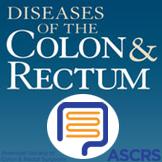 ASCRS / DC&R podcast
ASCRS / DC&R podcast
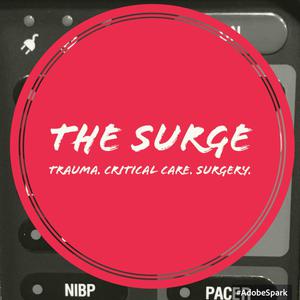 The Surge: Surgery. Trauma. Critical Care
The Surge: Surgery. Trauma. Critical Care
 Stay Current in Surgery-Short Pearl Videos
Stay Current in Surgery-Short Pearl Videos
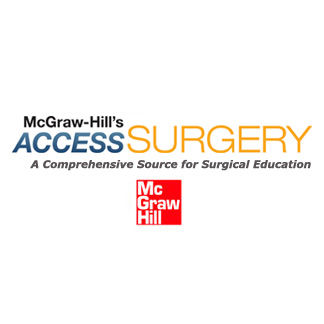 McGraw-Hill Professional - Access Surgery
McGraw-Hill Professional - Access Surgery
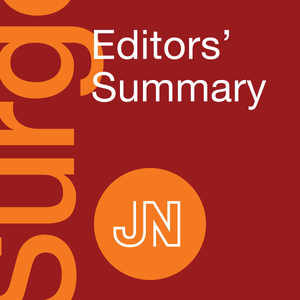 JAMA Surgery Editors' Summary
JAMA Surgery Editors' Summary
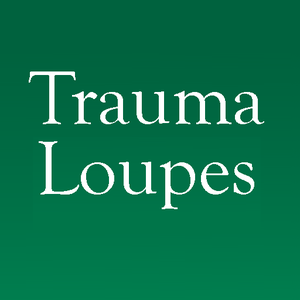 Journal of Trauma and Acute Care Surgery - Trauma Loupes Podcast
Journal of Trauma and Acute Care Surgery - Trauma Loupes Podcast